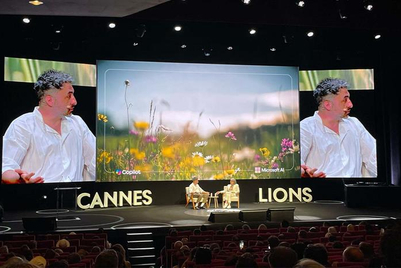
As luxury experiences go, space tourism is epic: For a couple of minutes, travelers can witness the Earth’s curve below. However, while billionaires Bezos, Branson, and Musk battle it out for the fastest and furthest space launches, there is no sign of a Jack Ma space project — or any from Pony Ma or Colin Huang for that matter. Not yet, anyway.
But, over the past seven years, China has been stepping up its space exploration, with around $6.5 billion raised by commercial space companies ranging from private VCs and commercial firms to regional governments. China landed a rover on Mars in May and made one more giant leap in July when a spacecraft capable of flying to the edge of the atmosphere took off and returned to Earth on the same day.
And as space exploration starts to become a reality for a chosen few, many would-be space explorers could reside in China. The country is second only to the US in housing the world’s top 500 billionaires and, therefore, has its fair share of wealthy individuals who might have their eyes on the sky. But for now, Mainland tycoons are more focused on enterprises that support the country’s space ambitions, including launch vehicles and satellites, rather than helming their own private crafts.
Therefore, with cosmic cruising on the horizon, Jing Daily explores the implications it could bring to luxury trends back on Earth and what role rising Chinese sentiment could play?
Are luxury spacesuits on the way?
Since the 1960s, fashion has regularly looked to outer space for inspiration, particularly houses like Courrèges and Paco Rabanne. Now, the excitement surrounding the space race is building up again, and in recent seasons, Louis Vuitton, Marine Serre, Givenchy, and Balmain have all dabbled with space-related motifs. Prada included subtle design nods in its Autumn ’21 collection, while Valentino’s latest oeuvre featured some restrained references.
The forecasting agency WGSN has been tracking the newest iterations of the trend since 2019 and, Sara Maggioni, head of Womenswear at WGSN, feels it should play out in two ways: “We will see a bit of a resurgence of 1960s retro-futuristic looks, led by designers that have either made this style their signatures, such as Courrèges or Paco Rabanne, or ones that have dabbled in futuristic designs before. Nicolas Ghesquière is quite fond of the space-inspired look, and it was evident across the latest Pre-Summer 2022 collection.”
As the idea of being in space becomes more tangible, Maggioni suggests the theme will infiltrate designs, “concepts, campaigns, and commercials.” Meanwhile, it will also inspire space-related capsule collections and collaborations, such as “the Balenciaga/NASA-inspired range.” That will lead to a big push for “innovative materials with high-tech properties, sleek technical looks, space-themed prints, and futuristic-looking sneakers.”

Still, she thinks we’ll be waiting a while for the arrival of a luxury spacesuit. “Although there is a real buzz at the moment, there are so many other things at play. [So] we won’t be going around dressed in head-to-toe space-inspired designs any time soon.” Even high-end customers will have to make do with sensorial events and livestreams that can offer a “democratic way for people to experience space from home” or Metaverse opportunities until more of us can venture skyward.
What role will China play in the fashion race to the stars?
Several Chinese brands have already dabbled in space-themed campaigns, events, and collections, from Peacebird and Li Ning to Perfect Diary and Anta. According to Vincent Djen, founder of the Chinese clothing company Cheng Kung, collaborations like the Perfect Diary and China Aerospace Science and Technology Corporation pairing “allow a new young generation to be more interested in technology and space exploration.”

Djen suggests that, over time, we will see “a new category of fashion play out;” instead of biker jackets and pants, it will be space jackets and pants. “It’s only a matter of time before we will see space travelers wearing “Li Ning or Anta gear to space,” he adds. Still, if any brand is more likely to dress China’s space tourists, it will be Anta. China’s biggest sports company trades on the Hong Kong stock exchange and currently has a market value of about $64 billion and will soon overtake adidas as the second most valuable sports brand.
Anta has indeed been paying close attention to space exploration and drawing inspiration from the field, a spokesperson told Jing Daily. The company uses aerospace as design inspiration in its Seeed collection, which features design elements like spacesuits, space capsules, probes, and star surfaces. Its “Starry Sky Technology,” inspired by China’s first lunar sample-return spacecraft, Chang’e 5, is a new type of constant temperature technology that can actively adjust the temperature of shoes to make feet more comfortable.
Anta continues to feature technology in its product design to entice the country’s younger demographics. “We always pay attention to the development of China’s aerospace industry and hope to establish companionship and trust with the sector,” the brand’s spokesperson says.”That can be seen in our running shoes, which have been selected by Chinese astronauts to help them perform safer and more efficient training.”
With the primary supplier of NASA’s space suits since the dawn of the Apollo mission, ILC Dover, left in the dust by more style-conscious tourists, will China’s ultra-rich start to look toward local fashions with space exploration growing? If they do, Anta is sure to benefit from this exciting possibility.



.jpg&h=334&w=500&q=100&v=20250320&c=1)


.png&h=334&w=500&q=100&v=20250320&c=1)




.png&h=334&w=500&q=100&v=20250320&c=1)


+credit+casson1.jpg&h=268&w=401&q=100&v=20250320&c=1)

.png&h=268&w=401&q=100&v=20250320&c=1)
.png&h=268&w=401&q=100&v=20250320&c=1)
.png&h=268&w=401&q=100&v=20250320&c=1)

